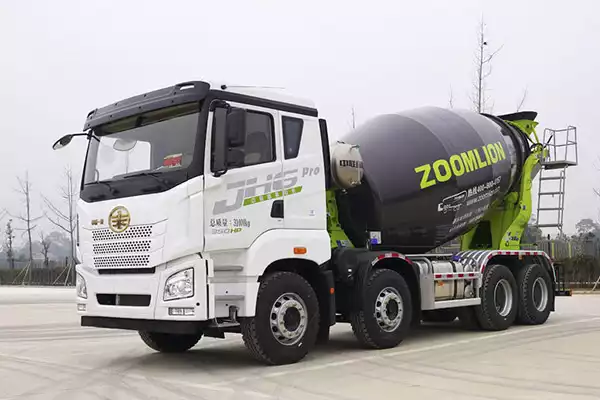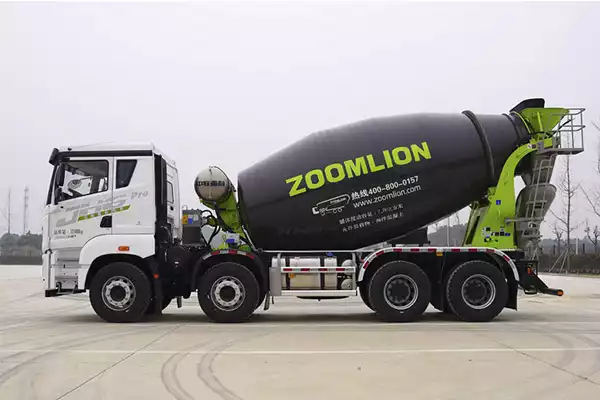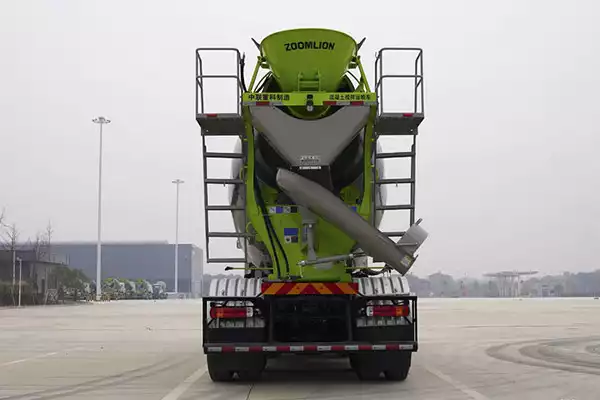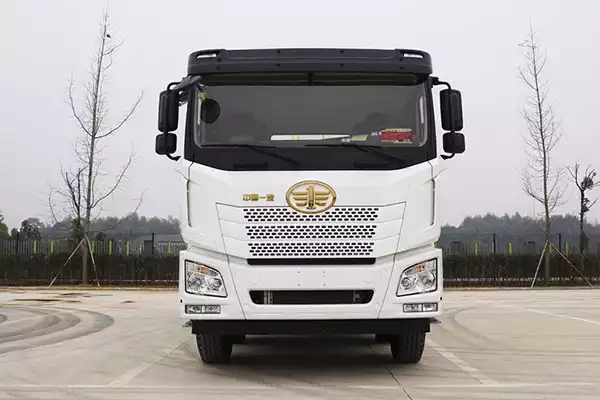Concrete truck mixers are essential vehicles in the construction industry, designed to transport and mix concrete on-site. With their efficient mixing capabilities, versatility, and ability to save time and costs, these trucks play a crucial role in ensuring consistent concrete quality and enhancing construction project efficiency. In this article, we will explore the key features and benefits of concrete truck mixers, highlighting their importance in optimizing concrete operations.
Introduction to Concrete Truck Mixers
Concrete truck mixers, also known as transit mixers, are specialized vehicles equipped with rotating drums that facilitate the mixing and transportation of concrete. These trucks are designed to deliver freshly mixed concrete directly to construction sites, eliminating the need for separate mixing and transportation processes.
Efficient Mixing for Consistent Concrete Quality
![]()
Concrete truck mixers are equipped with rotating drums that ensure efficient and thorough mixing of concrete. The continuous rotation of the drum keeps the concrete in a homogeneous state, preventing segregation and ensuring consistent quality throughout the transit period. This efficient mixing process results in high-quality concrete that meets the required specifications.
Versatile Applications in Construction
Concrete truck mixers find applications in various construction projects, including residential, commercial, and infrastructure developments. They can be used for pouring concrete in foundations, slabs, columns, walls, and other structural elements. Their versatility allows them to adapt to different project requirements, making them indispensable on construction sites.
Time and Cost Savings with On-Site Mixing
![]()
By combining mixing and transportation in a single vehicle, concrete mixer truck save valuable time and costs in construction projects. They eliminate the need for separate batching plants and additional transportation equipment, streamlining the concrete supply process. On-site mixing ensures that the concrete is fresh and readily available when needed, reducing the risk of delays and enhancing project timelines.
Increased Productivity and Project Timelines
Concrete truck mixers contribute to increased productivity and efficient project execution. They enable continuous concrete supply, minimizing waiting times and idle periods. With their large capacity drums, these trucks can transport significant volumes of concrete in a single trip, allowing for faster and more efficient concrete placement on the job site.
Precision and Control in Concrete Mixing
Concrete truck mixers offer precise control over the mixing process, allowing for adjustments in the consistency, slump, and admixture dosage as required. This level of control ensures that the concrete meets the specific project requirements and provides consistency in strength and durability. It also enables on-site adjustments to accommodate unforeseen changes in weather conditions or construction demands.
Safety and Environmental Considerations
![]()
Safety and environmental considerations are of utmost importance in the construction industry, and the concrete mixer truck is no exception. These vehicles are designed with advanced safety features and environmental considerations to ensure the well-being of operators, workers, and the surrounding environment.
Advanced Safety Features: Concrete truck mixers are equipped with a range of safety features to minimize accidents and ensure safe operation. Anti-lock braking systems (ABS) and stability control help prevent skidding and maintain control during emergency braking or challenging terrains. Rearview cameras and blind-spot monitoring systems enhance visibility, reducing the risk of accidents while maneuvering on busy construction sites.
Operator Safety: Ensuring operator safety is paramount in the design of concrete truck mixers. The vehicles are equipped with ergonomic cabs that prioritize operator comfort and reduce fatigue during long shifts. Easy-to-reach controls and intuitive interfaces enable smooth operations, allowing operators to focus on their tasks while staying alert to potential hazards.
Emergency Stop Systems: Concrete truck mixers feature emergency stop buttons that provide an immediate means to halt operations in case of emergencies. This quick-response system ensures that the mixer can be stopped promptly, safeguarding both personnel and equipment from potential harm.
Environmental Responsibility: The construction industry is increasingly focused on environmental responsibility, and concrete truck mixers play a part in reducing their environmental footprint. Many modern truck mixers are designed with fuel-efficient engines, reducing greenhouse gas emissions and fuel consumption. Additionally, emission control systems help mitigate harmful pollutants, minimizing the impact on air quality.
Noise Reduction: Noise pollution is a concern on construction sites, affecting both workers and nearby communities. Concrete truck mixers are designed with noise reduction measures to minimize the noise generated during operations, creating a more pleasant working environment and reducing disturbance to surrounding areas.
Sustainable Materials: Some concrete truck mixers are manufactured using sustainable materials and eco-friendly practices. Utilizing recycled or renewable materials in construction helps conserve natural resources and minimizes waste.
Compliance with Regulations: Concrete truck mixer manufacturers ensure that their vehicles comply with relevant safety and environmental regulations. Compliance with these standards ensures that the vehicles meet stringent safety and environmental criteria, offering peace of mind to construction companies and project stakeholders.
Environmentally Friendly Practices: Operators and construction companies can adopt environmentally friendly practices to further reduce the environmental impact of concrete truck mixers. Proper waste management, recycling of materials, and responsible disposal of waste contribute to a greener construction process.
Training for Safe Operation: Ensuring that operators receive adequate training on the safe operation of concrete truck mixers is crucial. Proper training helps operators understand and follow safety protocols, promoting a culture of safety on construction sites.
Continuous Improvement: Manufacturers continuously strive to improve the safety and environmental aspects of concrete truck mixers. Innovation and technological advancements are integrated into new models to enhance safety features and reduce environmental impact.
Safety and environmental considerations are at the forefront of the design and operation of concrete mixer truck. With advanced safety features, operator-focused designs, environmental responsibility, and adherence to regulations, these vehicles prioritize the safety of personnel and the surrounding environment. By promoting safety practices, adopting environmentally friendly measures, and embracing continuous improvement, the construction industry can further enhance the safety and environmental performance of concrete truck mixers, contributing to a more sustainable and responsible construction sector.
Maintenance and Longevity of Concrete Truck Mixers
![]()
Regular maintenance is essential to ensure the longevity and optimal performance of concrete truck mixers. Routine inspections, lubrication, and timely repairs contribute to the longevity of the vehicle and prevent unexpected breakdowns. Following manufacturer-recommended service schedules and utilizing genuine spare parts will help keep the mixer in excellent condition.
Choosing the Right Concrete Truck Mixer for Your Needs
When selecting a concrete mixer truck, consider factors such as drum capacity, engine power, transmission type, control systems, and safety features. Assess your project requirements and consult with reputable truck manufacturers or dealers to find the most suitable option that meets your needs and budget.
Conclusion
Optimize Concrete Operations with a Concrete Truck Mixer In conclusion, concrete truck mixers are indispensable in the construction industry, providing efficient mixing and transportation of concrete on-site. Their features and benefits, including efficient mixing, versatility, time and cost savings, increased productivity, precision, and control, make them essential tools for optimizing concrete operations. Choose a reliable concrete truck mixer to enhance the efficiency, quality, and timely delivery of concrete in your construction projects.Contact us talenet.











